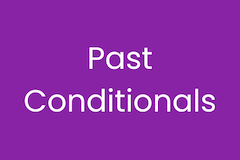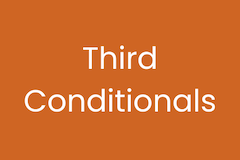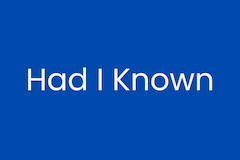Had I known
Listen to four conversations using the grammar point.
Answer the following questions about the interview.
Had I known
Point 1 : A common expresson in English is "Had I known..." which expresses someone did not do something because they were not aware of some information.
- Had I known you were in town, I would have invited you to my house.
- Had I known you were sick, I would have made you some soup.
- Had I known you played golf, I'd have asked you to play with us.
Point 2: The phrase "had I known" is a shortened way of saying "If I had known" but with the same effect.
- If I had known you were in town, I would have invited you to my house.
- Had I known you were in town, I would have invited you to my house.
- If I had known you were sick, I would have made you some soup.
- Had I known you were sick, I would have made you some soup.
- If I had known you played golf, I'd have asked you to play with us.
- Had I known you played golf, I'd have asked you to play with us.
Point 3 : The phrase "I would have" is usually reduced to "I'd have" in spoken English and sounds like /I duv/ or /I dove/.
- Had I known you were in town, I'd have invited you to my house.
- Had I known you were sick, I'd have made you some soup.
- Had I known you played golf, I'd have asked you to play with us.
Point 4: The pronoun "that" is often used to refer to a previous clause.
- I play golf.
- Had I known that, I would have asked you to play with us.
- I was sick.
- Had I known that, I'd have made you some soup.
- I was in town.
- Had I known that, I would have invited you over for dinner.
Main Text Goes Here










